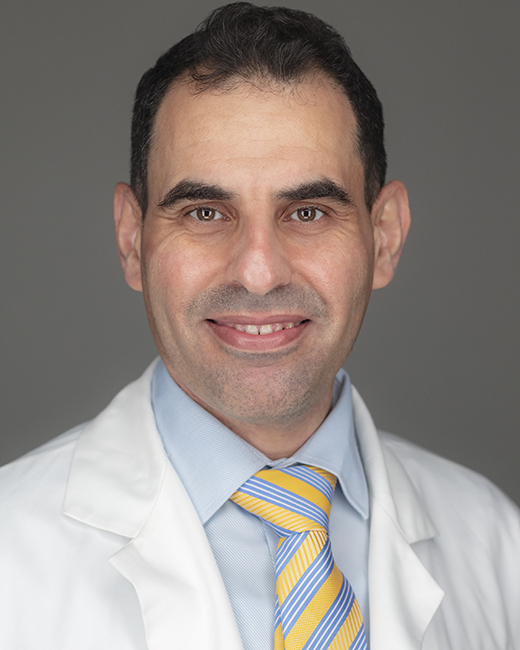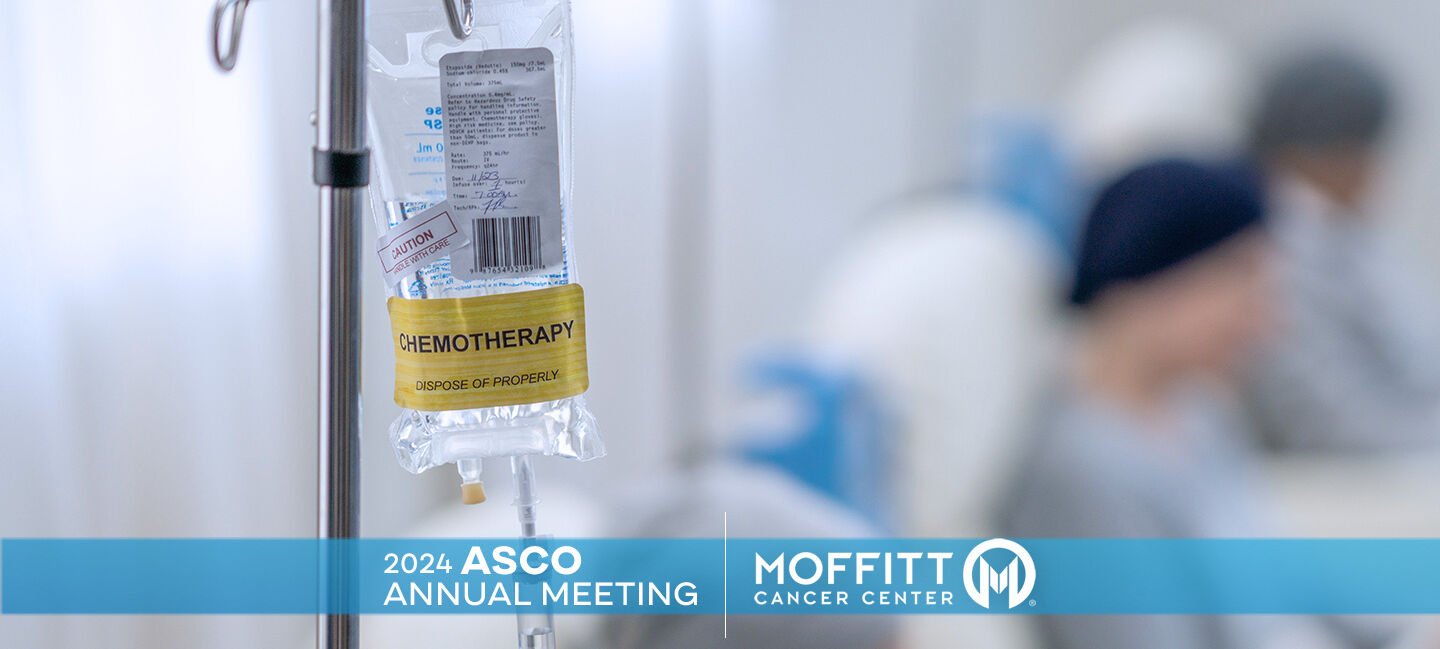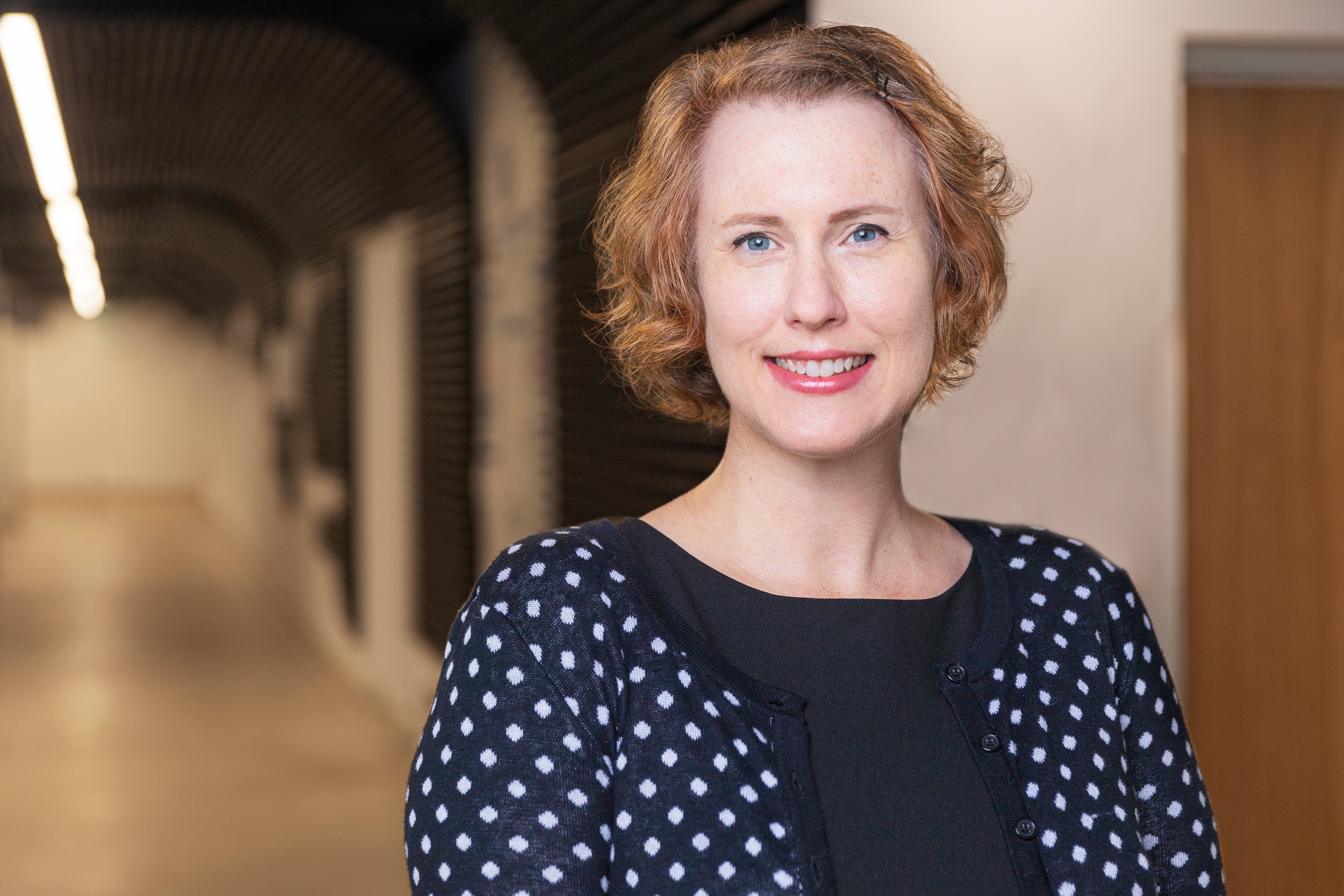Could a Quick Electronic Assessment Improve Outcomes for Older People with Pancreatic Cancer?
The silver tsunami is coming. That’s how geriatric oncologist Mohammed Al-Jumayli, MD, describes the anticipated increase in older people diagnosed with cancer over the next few years. Many of these patients will be octogenarians, who are often not considered candidates for surgery and may be assumed too frail for chemotherapy.
As an expert in the Senior Adult Oncology Program at Moffitt Cancer Center, Al-Jumayli aims to change the way these types of patients are evaluated for treatment. In his presentation at the annual American Society of Clinical Oncology meeting this week, Al-Jumayli discussed his research using an electronic frailty index, known as an eFrailty index, to determine whether frailty scores correlated with chemotherapy toxicity in patients 80 and older with pancreatic cancer.
“We need to personalize treatment based on these patients’ needs,” he said. “Often, older patients are denied meaningful treatment that could change their outcomes. Especially with this aggressive cancer, a fit patient 80 years or older, if the cancer is caught early and cured, you can really make a difference in their lives.”
A recent study found that older adults are expected to make up an increasing proportion of total cancer cases, with people older than 65 accounting for almost 70% of new cancer diagnoses by 2030. Within that age group, the subset of people aged 85 and older is also on the rise. Yet the research doesn’t reflect these populations.
“More than 75% of people diagnosed with pancreatic cancer are 75 and older,” Al-Jumayli said. “But when you look at the landmark trials, older adults are underrepresented. So most of our decisions as medical oncologists and surgeons are based on data from younger people.”

In a perfect world, all older patients would undergo a Comprehensive Geriatric Assessment at the time of diagnosis. This assessment evaluates physical performance, function, psychological status, cognition, nutrition, comorbidities and social support in older patients. The assessment can guide treatment plans, detect potential problems, predict chemotherapy toxicity and postoperative complications, predict functional outcomes and lead to new interventions. However, the assessment is time-consuming for physicians and nursing teams to compile all the data needed.
The eFrailty index is a validated clinical assessment tool that automatically retrieves data from patients’ electronic medical records to assign a score indicating whether they are fit, vulnerable or frail. This index offers a user-friendly and efficient method for physicians to evaluate the fitness of older patients for various treatments, significantly reducing the time required for manual assessments.
At Moffitt, a team of geriatric oncologists has developed a validated and reliable eFrailty index specifically designed for older adults diagnosed with pancreatic cancer. This innovative tool has been found predictive for survival, risk of cancer therapy toxicity and surgical complications. The eFrailty index helps tailor therapy to meet the unique needs of each patient, ensuring better outcomes and personalized care.
Al-Jumayli’s study looked at eFrailty index data from 70 patients aged 80 and older who had been diagnosed with pancreatic cancer and treated with chemotherapy. His research showed a correlation between the eFrailty index and chemotherapy toxicity, with frailer patients experiencing more toxicity and fit patients having better outcomes.
Because chemotherapy is a common treatment both before and after surgery for pancreatic cancer, assessing an older patient’s fitness for it is imperative.
“What we are doing overall in geriatric oncology is two things: We are trying to avoid overtreatment for older adults who we know could have poor outcomes, and we are trying to avoid undertreatment of older patients who could have better outcomes,” Al-Jumayli explained.
The study’s correlation between frailty and chemotherapy toxicity in older patients aligns with previous research Al-Jumayli has conducted on the eFrailty index and surgical outcomes in octogenarians with pancreatic cancer. In the future, Al-Jumayli plans to conduct a prospective trial to see if implementing the eFrailty index could predict and improve outcomes.
“We are a cancer center that operates on fit 80-year-olds, more than others,” he said. “Our center is really specialized, from the surgeons to the medical oncologists, in managing older adults with cancer. The eFrailty index is a valuable tool in that.”



